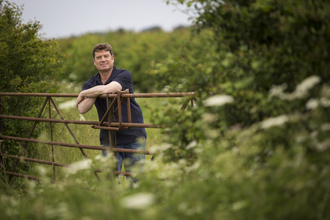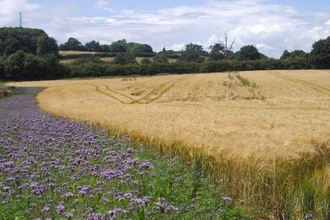Our key amendments for the Agricultural Bill, explained
1. Long-term and substantial funding
Crucial to the success of the Government’s proposed new Environmental Land Management system will be guaranteed long-term funding that will be able to deliver the Government’s ambition to leave the environment in a better state for the next generation. Farmers need to be paid adequately for managing their land to deliver these public goods.
A report by The Wildlife Trusts, National Trust and RSPB found that at least £2.3 billion a year is required to ensure the UK meets it current environmental land management commitments. Long term, sufficient budgets need to be set well in advance - at a level which will ensure nature's recovery on the ground.
2. Duty to act
The Agriculture Bill has few requirements put on Government. To provide greater certainty to farmers and land managers, the Bill should contain more requirements on the Government to translate its own vision into policy – including a requirement to further the maintenance, recovery and restoration of the natural environment through an Environmental Land Management Scheme.
3. New ambitious targets for nature’s recovery
Fundamental to reversing the fortunes of our wildlife, as well as ensuring the delivery of the Government’s 25 Year Environment Plan in England, will be the introduction of new ambitious legally-binding targets covering clean air and water, healthy soils, public access to high-quality natural green spaces, connected and quality habitats and abundant wildlife including pollinators.
The Agriculture Bill should require the Government to develop and set specific, measurable and timebound environmental land management targets to deliver this ambition.
4. Sustainable productivity improvement payments
The Bill enables financial assistance to start or improve the productivity of agriculture, horticulture or forestry activities, for example for machinery for applying fertiliser. Support for improving productivity should only be made for activities which deliver equivalent or better environmental outcomes, i.e. for sustainable production. Otherwise payments might result in activities which damage the environment, such as mass planting of Sitka spruce which may improve financial productivity in the short term but is damaging for the environment and does not benefit wildlife in the long term.
5. Trade
It is key that any future trade deals do not allow products produced to lower environmental and animal welfare standards to be imported into the UK. This could undermine our own protections.
6. Regulatory baseline and compliance
The Agriculture Bill says little about regulation beyond the ability to establish enforcement and inspections of new financial assistance payments. It should be clear that the receipt of public payments is dependent on following regulatory standards.



